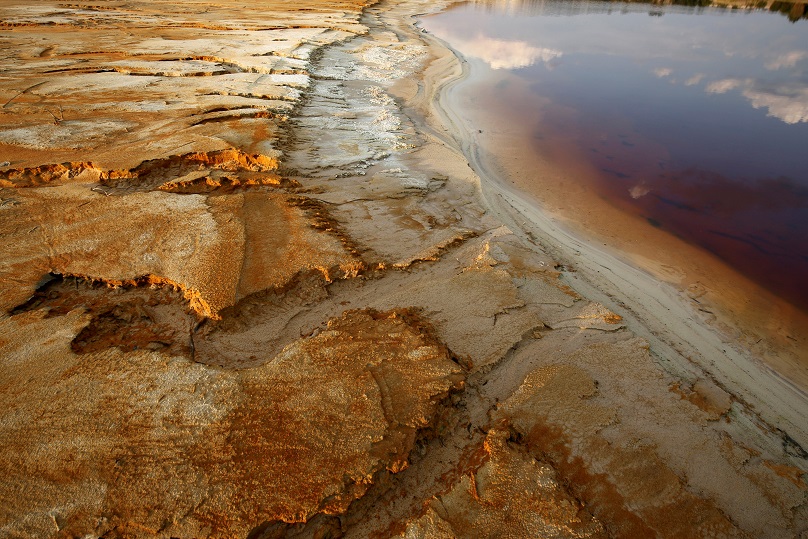CAPE TOWN (Reuters) – The world’s top mining companies warned on Tuesday that assets will be stranded and investors will walk away unless they deal with water scarcity in key mining regions such as Africa, Australia and Latin America.
After the hottest global year on record in 2016, water has shot up the agenda at mining board meetings.
“Investors say to us: ‘don’t talk to us about returns’; they want to know how we’re managing water,” Nick Holland, Chief Executive Officer of Gold Fields, said at an international mining conference in Cape Town.
Mining requires water at almost every stage of the process and the bulk of the assets of major mining companies are in water-stressed regions mostly in the southern hemisphere.
Anglo American has said it is striving to use as little water as possible. It has limited water consumption by using 65 percent recycled water and its goal is to reach 95 percent over the next decade.
“Water is one of the greatest constraints to new supply of mined products across the industry,” Anglo American Chief Executive Mark Cutifani said.
“Investors can see there’s a risk that if regions are running short of water, there’s a good chance miners will have to divert those resources. What are we doing to anticipate that?”
Mining companies cite examples where water has caused conflict. For instance, Barrick Gold Corp mining operations in Peru were disrupted in 2012 because of protests over water supplies.
With its biggest mine in the Mexican desert, Canada’s Goldcorp, the world’s third-biggest gold miner, is investing $60 million in new technology to slash the amount of water it uses to store mine tailings, or waste.
“To draw on wells to sustain your operations could be a source of potential conflict down the road,” Goldcorp CEO David Garofalo said in an interview late last month, calling water the mining industry’s “number one” challenge.
The International Council on Mining and Metals, which groups 23 firms including BHP Billiton, Rio, Anglo American and Glencore, in January published a position on water stewardship to enforce best practice.
The industry body quotes research showing increased levels of conflict because of water and the financial cost of water issues, saying water-related infrastructure accounts for approximately 10 percent of the industry’s capital expenses.
Since 2000, water-related issues were implicated in 58 percent of mining cases lodged with the World Bank Group’s Compliance Officer Ombudsman, which deals with complaints from communities around mining operations, data published in January showed.
(Additional reporting by Nicole Mordant in Vancouver; Editing by Susan Thomas and Sandra Maler)
Copyright 2016 Thomson Reuters. Click for Restrictions.


